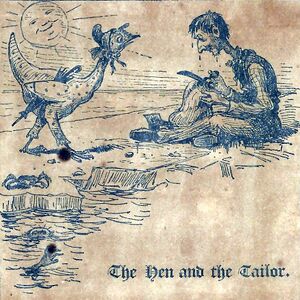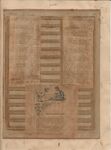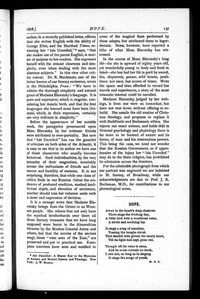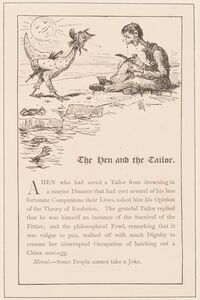< Helena P. Blavatsky (continued from page 4-204) >
author, in a recently published letter, affirms that she writes English with the ability of George Eliot, and the Hartford Times, reviewing her “Isis Unveiled,” * says, “that she makes use of the purest English, is matter of surprise to her readers. She expresses herself with the utmost clearness and simplicity, even when dealing with the most abstruse subjects.” In this view other critics concur. Dr. R. Mackenzie, one of the better known of our literary reviewers, wrote in the Philadelphia Press: “We have to admire the thorough simplicity and natural grace of Madame Blavatsky’s language. It is pure and expressive, which is singular, considering her Asiatic birth, and that the first languages she learned must have been Oriental, which, in their expression, certainly are very deficient in simplicity.”
Before the appearance of her notable work, the panegyrics pronounced upon Mme. Blavatsky by her intimate friends were attributed to over-partiality. But now that “ Isis Unveiled ” has run the gauntlet of criticism on both sides of the Atlantic, it is easy to see that in its author we have one of those characters who usually become historical. Such individualities, by the very intensity of their magnetism, invariably arouse the enthusiasm of friends and the rancor and hostility of enemies. It is not surprising, therefore, that while one class of critics finds in our Russian visitor the evidences of profound erudition, marked intellectual depth, and elevation of sentiment, another should toss her volumes aside with a sneer and expression of derision.
It is a strange news that Madame Blavatsky brings from the Orient to us Western people. She relates that not only have the mystical brotherhoods over there all those literary treasures that we have long supposed were burnt in the Alexandrian libraries by the Moslem General Amru and others, but that the secrets of the ancient magi, those “wise men of the East,” are preserved and put to practical use. European travelers have seen and testified to some of the magical feats performed by these adepts, but attributed them to legerdemain. None, however, have reported a tithe of what Mme. Blavatsky has witnessed.
(*) In the course of Mme. Blavatsky's long life–for she is upward of eighty years old, yet wonderfully young in body and fresh in mind–she has had her life in peril by sword, fire, shipwreck, poison, wild beasts, pestilence, not once, but scores of times. Were the space and time afforded to record her travels and experiences, a story of the most romantic interest could be unrolled.
Madame Blavatsky, judged by her writings, is from one view an iconoclast, but does not tear down without offering to rebuild. She assails the old routine of Christian theology, and proposes to replace it with Buddhistic and Brahmanic ethics. She rejects our exact science, and holds that in Oriental psychology and physiology there is far more to be learned of nature and its forces, of man and his tremendous powers. This being the case, we need not wonder that the Russian Government, as if apprehensive of the injury her “ Isis Unveiled ” may do to the State religion, has prohibited its admission across the frontiers.
For the admirable photograph from which our portrait was engraved we are indebted to M. Sarony, of Broadway, while our acknowledgments are due to Prof. J. R. Buchanan, M.D., for contributions to our phrenological notes.
* Isis Unveiled: A Master Key to the Mysteries of Ancient and Modern Science and Theology. New York : J. W. Bouton.
The Hen and the Tailor

A HEN who had saved a Tailor from drowning in a marine Disaster that had cost several of his less fortunate Companions their Lives, asked him his Opinion of the Theory of Evolution. The grateful Tailor replied that he was himself an instance of the Survival of the Fittist[3]; and the philosophical Fowl, remarking that it was vulgar to pun, walked off with much Dignity to resume her interrupted Occupation of hatching out a China nest-egg.
(*) Moral.–Some People cannot take a Joke.
Editor's notes
Sources
-
The Phrenological Jornal, v.66, No. 3, Whole No. 471, March, 1878, p. 137
-
The Hen and Tailor. Engraving by F. S. Church for the humour story by G. T. Lanigan



